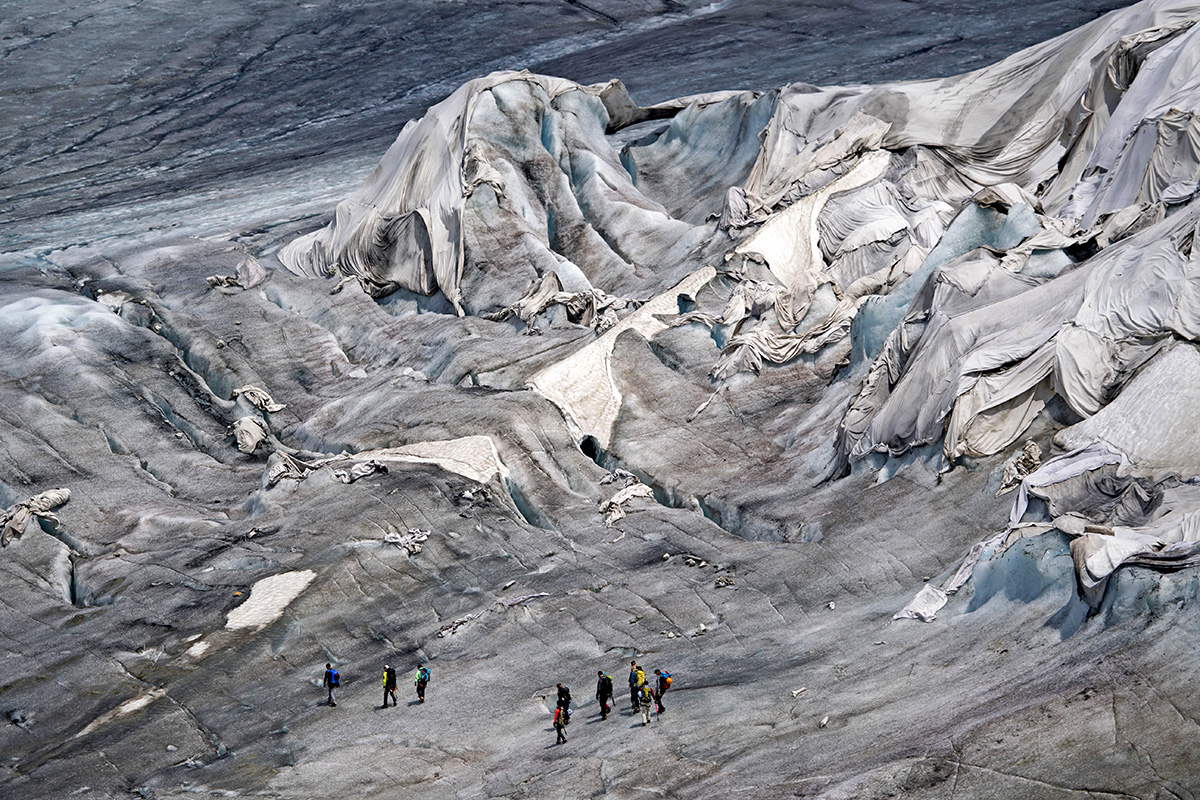Every Year, the Swiss Cover Their Melting Glaciers in White Blankets

Get the world’s most fascinating discoveries delivered straight to your inbox.
You are now subscribed
Your newsletter sign-up was successful
Want to add more newsletters?

Delivered Daily
Daily Newsletter
Sign up for the latest discoveries, groundbreaking research and fascinating breakthroughs that impact you and the wider world direct to your inbox.

Once a week
Life's Little Mysteries
Feed your curiosity with an exclusive mystery every week, solved with science and delivered direct to your inbox before it's seen anywhere else.

Once a week
How It Works
Sign up to our free science & technology newsletter for your weekly fix of fascinating articles, quick quizzes, amazing images, and more

Delivered daily
Space.com Newsletter
Breaking space news, the latest updates on rocket launches, skywatching events and more!

Once a month
Watch This Space
Sign up to our monthly entertainment newsletter to keep up with all our coverage of the latest sci-fi and space movies, tv shows, games and books.

Once a week
Night Sky This Week
Discover this week's must-see night sky events, moon phases, and stunning astrophotos. Sign up for our skywatching newsletter and explore the universe with us!
Join the club
Get full access to premium articles, exclusive features and a growing list of member rewards.
Summer's coming, which means that soon enough, it'll be time to tuck the glaciers in.
This year, like every year, a group of Swiss will traipse up through the mountains to the Rhône Glacier, hauling huge white blankets. As E&E News reported in a recent article on geoengineering, the annual hike is part of a doomed effort to protect the massive blocks of ice from the rising summer heat.
The Earth is getting warmer, and glaciers around the world are retreating and shrinking. As Live Science has previously reported, humans appear to have caused 69 percent of glacial melting between 1991 and 2010 — and warming has only accelerated in the nearly eight years since.
In the Rhône region, that shrinking represents an economic emergency as well as an environmental one. The ice mass, which 11,500 years ago covered a large chunk of Switzerland, is a significant tourist attraction; Agence France-Presse reported in 2015 that an "ice grotto" has been carved into the ice every year since 1870 for visitors to walk through, and is threatened by the shrinking ice. The glacier has retreated 4,600 feet (1,400 meters) since 1856.
The blankets, their white color chosen to reflect light before it strikes the ice, may slow the glacier's decline. But they won't stop it. Glaciologist David Volken told Agence France-Presse that the glacier still loses 3 to 5 inches (10 to 12 centimeters) on a hot day.
Nonetheless, this idea and others like it are becoming increasingly popular, as it grows clearer that the world will blow through the 2-degree-Celsius temperature rise target policymakers have set for limiting the worst effects of climate change. If the world's glaciers do collapse entirely, the potential for raising global sea levels is enormous, according to research published in 2013 in the journal Science.
As Oceans Deeply reported, scientists at the December 2017 meeting of the American Geophysical Union seriously considered proposals like spreading giant sheets of reflective material on top of landlocked polar ice, building huge mounds on the seafloor to keep warm water away from melting glaciers, or pumping huge amounts of ocean water on top of sea ice in the summer in order to add to its mass.
Get the world’s most fascinating discoveries delivered straight to your inbox.
All these ideas and more appear in an ongoing E&E series on geoengineering, which Live Science recommends reading in full.
Originally published on Live Science.

 Live Science Plus
Live Science Plus










